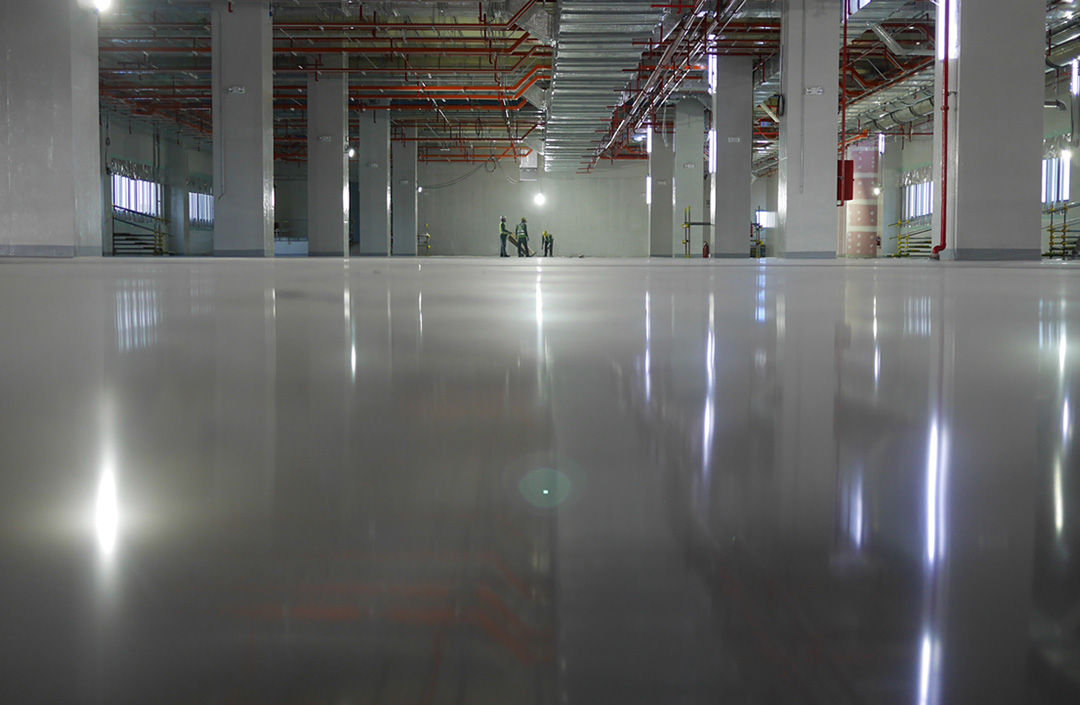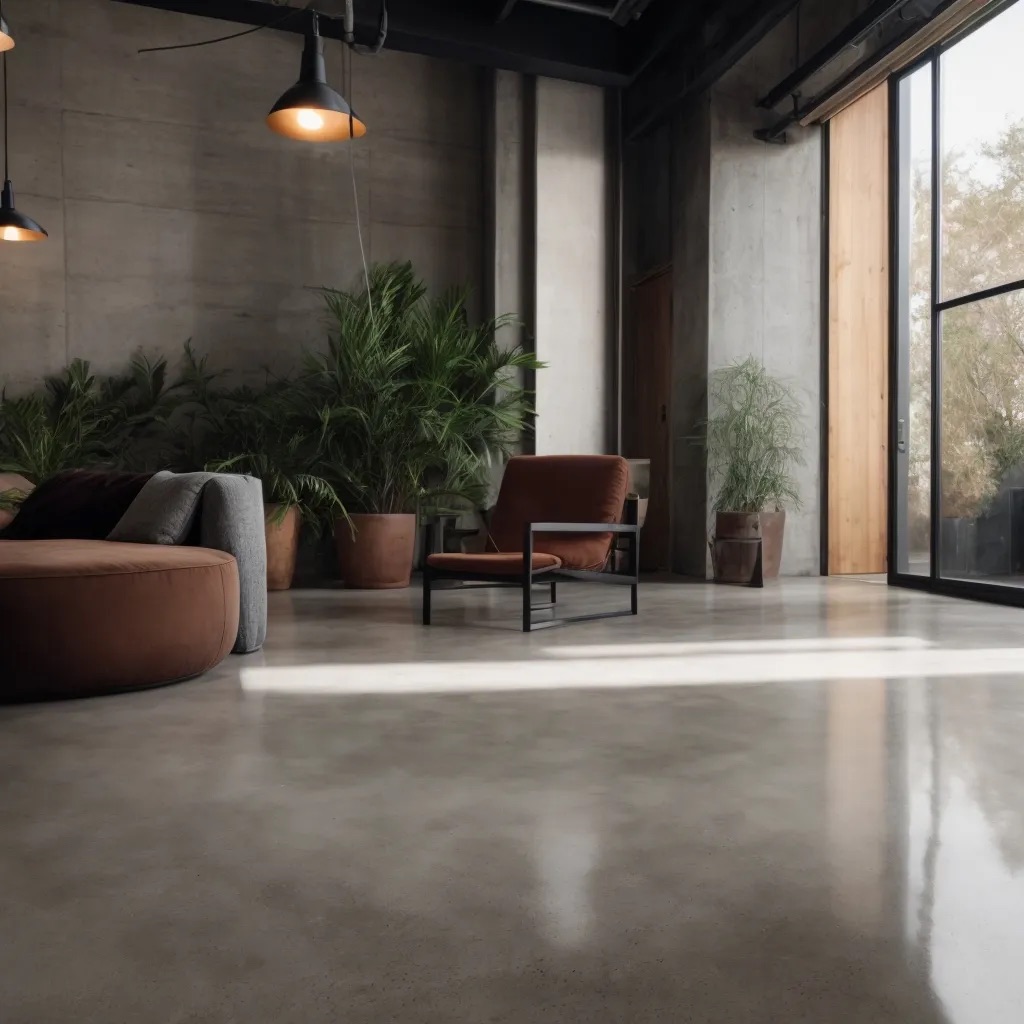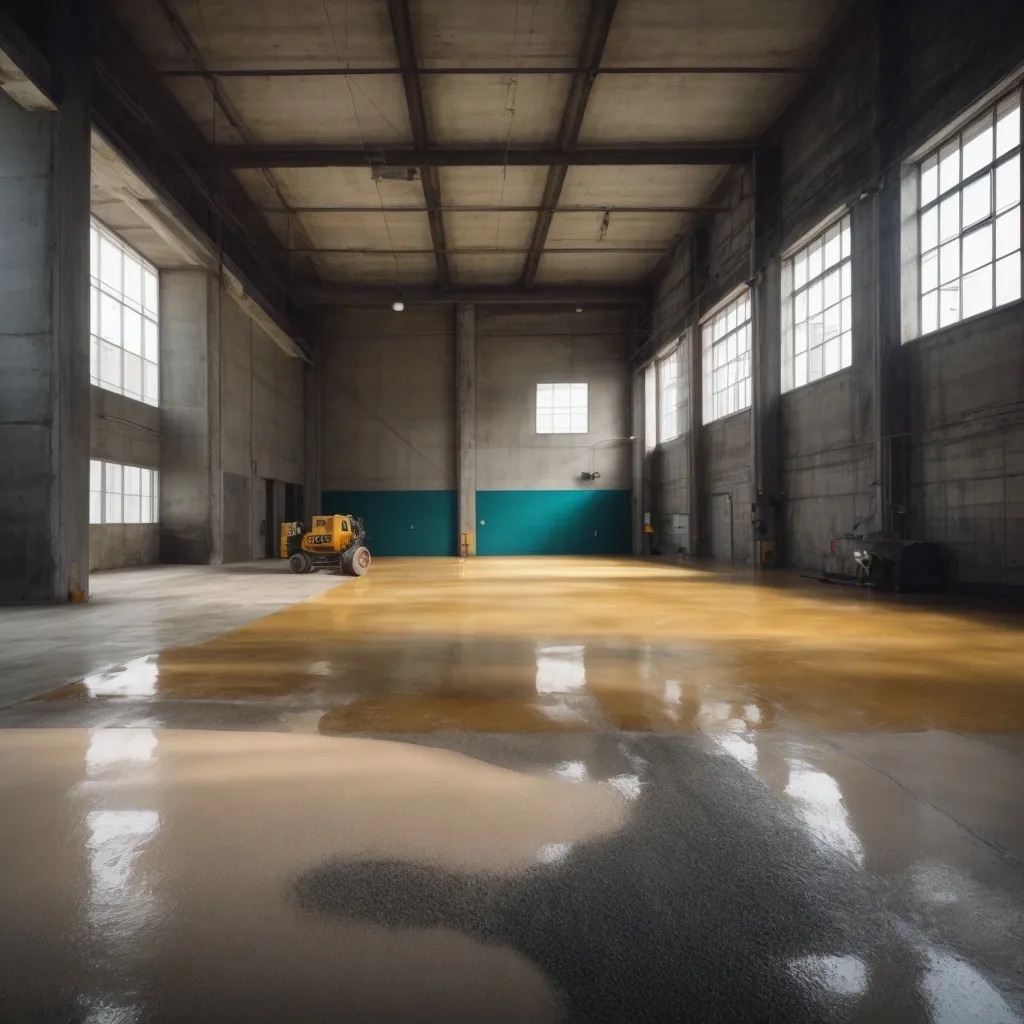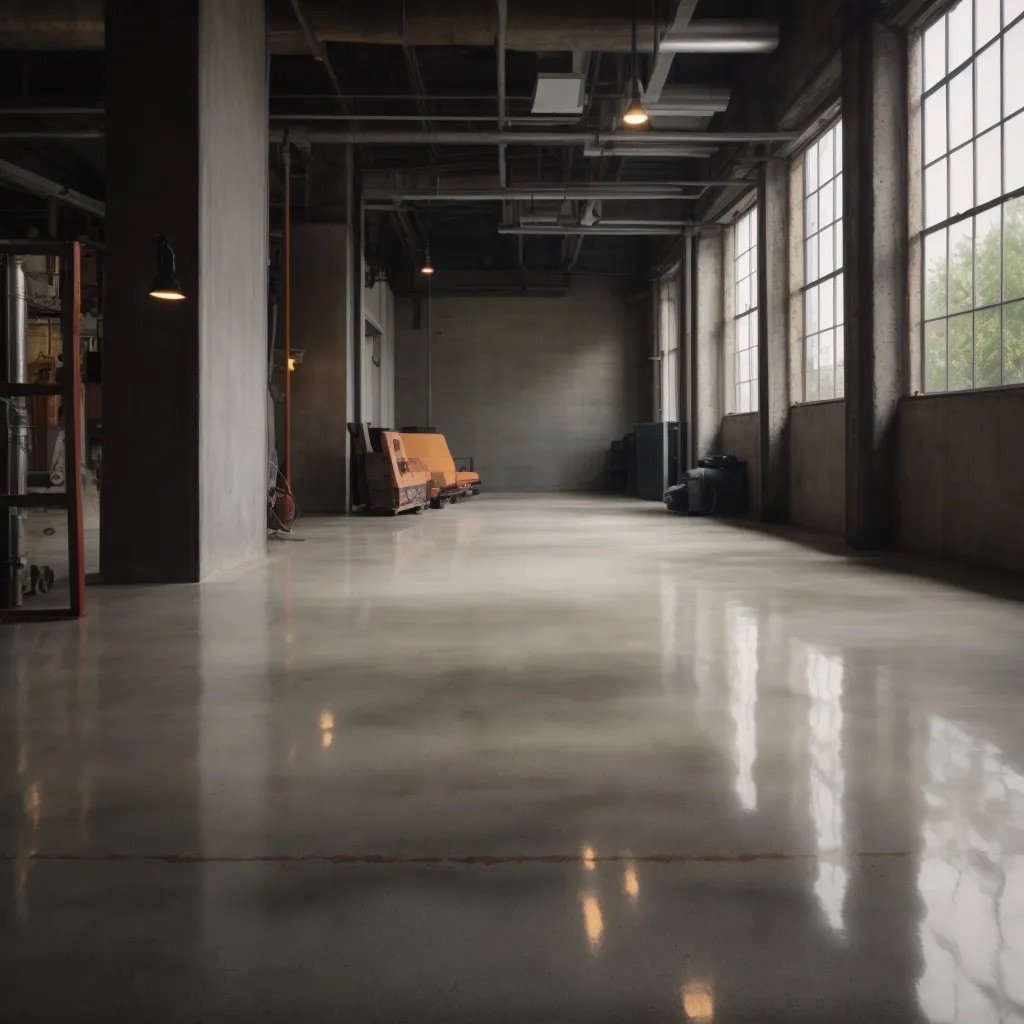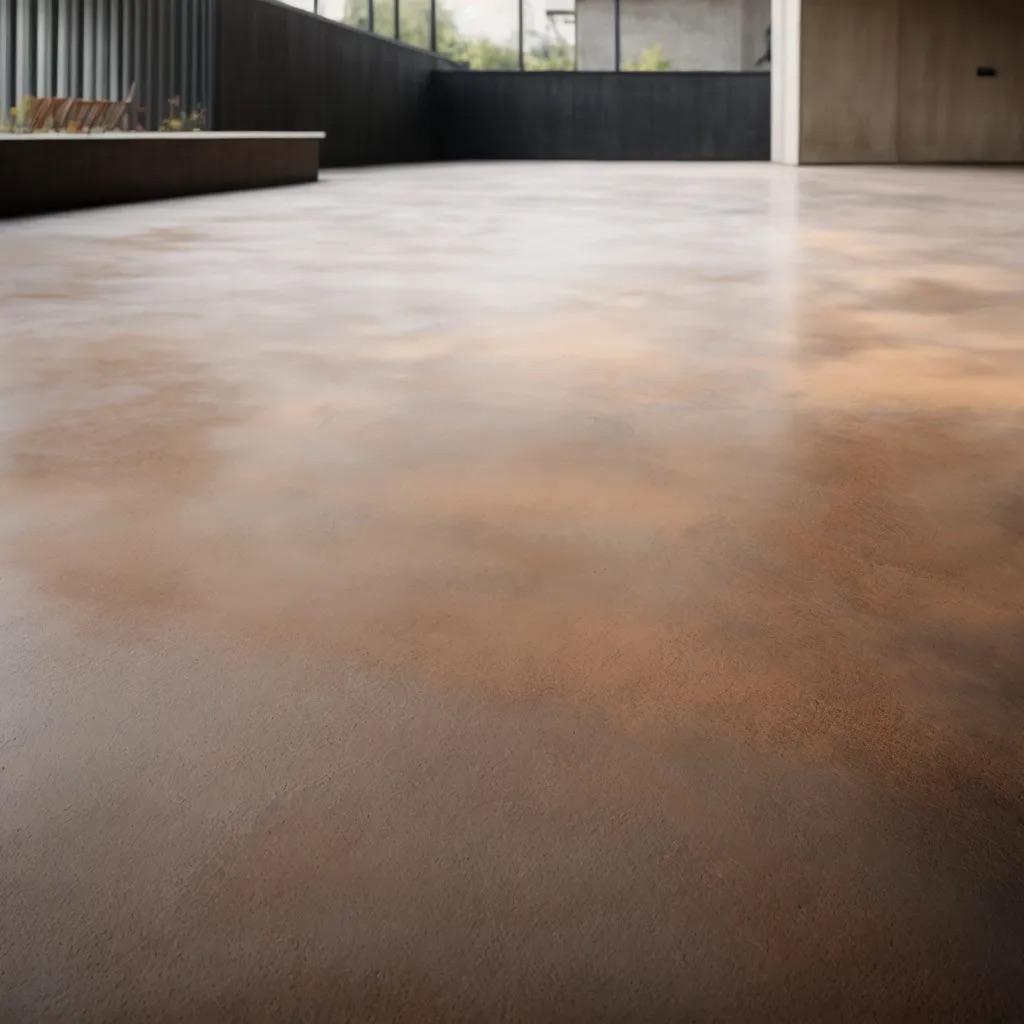Industrial facilities require flooring that can withstand heavy foot and vehicle traffic, chemicals, and extreme conditions. When it comes to durability and longevity, industrial epoxy flooring stands out as one of the top choices. This tough and versatile flooring option provides a seamless and polished finish that not only enhances the aesthetics of the facility but also offers exceptional resistance to wear and tear.
In this blog post, we will explore the benefits of industrial epoxy flooring, discuss the various types available, and provide valuable tips to help you choose the right industrial epoxy flooring for your facility.
Understanding Industrial Epoxy Flooring
Industrial epoxy flooring is a coating system applied to concrete floors to enhance their performance and appearance. It combines resins and hardeners, which chemically react to form a strong and durable surface. Epoxy flooring creates a seamless, smooth, and glossy finish that not only adds an attractive touch to the facility but also offers exceptional resistance to impact, chemicals, and abrasion.
Benefits of Industrial Epoxy Flooring
Durability and Longevity
Industrial epoxy flooring is renowned for its exceptional durability. It can withstand heavy machinery, forklift traffic, and constant use without cracking or wearing down. This longevity translates into cost savings in the long run, as the need for frequent repairs or replacements is significantly reduced.
Chemical Resistance
Industrial facilities often deal with hazardous chemicals and substances. Epoxy flooring is highly resistant to chemicals, including oils, acids, solvents, and alkalis. This resistance protects the floor and prevents chemical spills from seeping into the concrete, ensuring a safer working environment.
Slip Resistance
Safety is a top priority in industrial settings. Many epoxy flooring systems can be customized to provide slip-resistant surfaces by incorporating quartz or aluminum oxide additives. This enhances traction and reduces the risk of slips, trips, and falls, even in wet or oily conditions.
Easy Maintenance
Industrial epoxy flooring is exceptionally easy to clean and maintain. The seamless surface prevents dirt, dust, and debris from getting trapped, making it effortless to sweep or mop the floor. Regular cleaning helps maintain the glossy appearance and ensures a hygienic environment.
Aesthetics
Beyond its functional benefits, industrial epoxy flooring can transform the appearance of a facility. The smooth and reflective surface creates a bright and professional ambiance. Various color options are available, allowing businesses to choose a finish that aligns with their brand identity or safety requirements.
Types of Industrial Epoxy Flooring
Self-Leveling Epoxy Floors
Self-leveling epoxy floors are widely used in industrial environments because they create a seamless and level surface. These floors are poured and spread across the concrete, creating a smooth, glossy finish that is easy to clean and maintain. Self-leveling epoxy floors are ideal for warehouses, manufacturing plants, and automotive facilities.
Epoxy Mortar Floors
Epoxy mortar floors are the epoxy flooring family’s most robust and durable option. This type of flooring is created by combining epoxy with graded sand or quartz. The resulting mixture is troweled onto the concrete, creating a thick and impact-resistant surface. Epoxy mortar floors are highly resistant to heavy machinery, impact, and thermal shock, making them suitable for demanding industrial settings.
Decorative Epoxy Floors
Decorative epoxy floors are an excellent choice for facilities that require both durability and aesthetics. These floors can be customized with various decorative elements such as colored flakes, metallic pigments, or even custom designs and logos. Decorative epoxy floors are often used in showrooms, retail spaces, and commercial buildings.
Choosing the Right Industrial Epoxy Flooring
Assess Your Facility’s Needs
Before selecting an epoxy flooring system, evaluate your facility’s specific requirements. Consider factors such as foot and vehicle traffic, exposure to chemicals, temperature fluctuations, and the desired aesthetic appeal. This assessment will help you determine the most suitable type of epoxy flooring for your facility.
Consult with Experts
Reach out to experienced epoxy flooring professionals who can provide guidance based on their expertise. They can assess your facility, understand your needs, and recommend the most appropriate epoxy flooring system. Consulting experts will ensure that you make an informed decision and achieve the desired results.
Evaluate Performance Characteristics
Each type of epoxy flooring system offers unique performance characteristics. Consider factors such as durability, chemical resistance, impact resistance, slip resistance, and maintenance requirements when choosing the right flooring system for your facility. Prioritize the qualities that align with your facility’s needs and long-term goals.
Consider Budget and ROI
While quality should never be compromised, it’s important to consider your budget and the return on investment (ROI) when selecting an epoxy flooring system. Remember that the durability and longevity of epoxy flooring can result in significant cost savings over time. Balance your budget with the long-term benefits offered by the chosen epoxy flooring system.
Industrial epoxy flooring is an exceptional choice for demanding environments that require durability, chemical resistance, and an attractive finish. Its numerous benefits, including longevity, easy maintenance, slip resistance, and customization options, make it an ideal flooring solution for industrial facilities. By assessing your facility’s needs, consulting with experts, and evaluating the performance characteristics and budget, you can choose the right industrial epoxy flooring system that will withstand the rigors of your specific environment and provide long-lasting performance. With its toughness and versatility, industrial epoxy flooring continues to be the top choice for the most demanding industrial settings in Dallas, TX, and beyond.
Key Takeaways:
- Industrial epoxy flooring is a tough and durable flooring option ideal for demanding environments, providing exceptional resistance to wear and tear, chemicals, and heavy foot and vehicle traffic.
- The benefits of industrial epoxy flooring include durability, longevity, chemical resistance, slip resistance, easy maintenance, and the ability to enhance the aesthetics of a facility.
- There are different types of industrial epoxy flooring available, including self-leveling epoxy floors, epoxy mortar floors, and decorative epoxy floors, each with its unique characteristics and suitability for specific environments.
- When choosing the right industrial epoxy flooring, assessing your facility’s needs, consulting with experts, evaluating performance characteristics, and considering your budget and return on investment is essential.
- Industrial epoxy flooring offers a cost-effective solution in the long run, as its durability reduces the need for frequent repairs or replacements, resulting in significant cost savings over time.
- By selecting the appropriate industrial epoxy flooring system, you can achieve a seamless, polished, and attractive floor surface that not only meets the functional requirements of your facility but also enhances its overall appearance.
- Industrial epoxy flooring continues to be a popular choice for the most demanding industrial settings in Dallas, TX, and beyond due to its toughness, versatility, and ability to withstand extreme conditions.
- Overall, industrial epoxy flooring provides the toughest and most reliable flooring solution for industrial environments, combining durability, chemical resistance, and aesthetics to meet the demands of even the harshest conditions.

